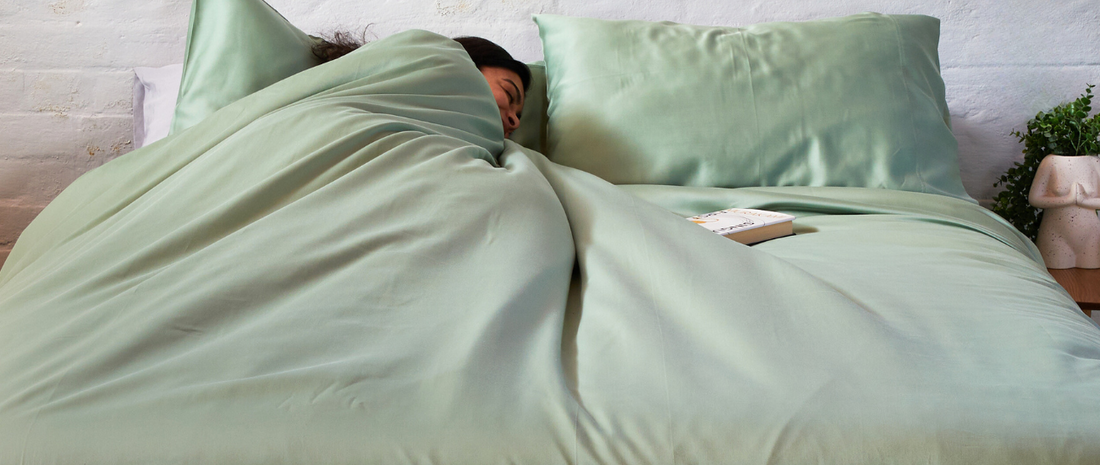
How to Sleep Better in Winter
Share
Winter is the season of cosy blankets, hot cocoa, and warm fires – but it's also the season of disrupted sleep. Don't worry, though – we've got some quick, realistic, actionable tips to help you sleep better and stay snug all winter long!
Be mindful of your diet
Indulging in comforting winter foods is a treat, but eating heavy meals too close to bedtime can interfere with your sleep. Try to avoid consuming heavy, greasy, or spicy foods within three hours of bedtime, and instead opt for lighter snacks like warm milk or herbal tea.
Keep it cool, but not too cool
It's true that cooler temperatures can promote better sleep, but if it's too cold, your body will have to work overtime to keep you warm, leading to restlessness and difficulty sleeping. Research suggests that a room temperature between 18-21°C is ideal for optimal sleep1. So, make sure to set your thermostat to a comfortable temperature that suits your preferences.
Adjust your bedding
Choosing the right bedding can make all the difference in getting a good night's sleep during winter. Opt for temperature-regulating sheets and comforters that provide warmth, and consider changing your linens when they feel damp to prevent discomfort. A heated blanket or mattress pad can also help keep you cosy throughout the night.
Wondering where you can find temperature-regulating sheets? Try Bed&Butter Eucalyptus Sheets.
Combat dry winter air with a humidifier
Cold temperatures outside can often mean dry air inside, which may cause sore throat, dry nasal passages, itchy skin, and other unpleasant symptoms. Using a humidifier in your bedroom can help add moisture to the air and alleviate these discomforts, making it easier to fall asleep and stay asleep2.
Cosy up with hot tea (science-backed!)
Try these herbal teas renowned for their sleep-supporting properties:
According to clinical trials3, chamomile tea can act as a relaxer for the nervous system, similar to valerian root.
Lemon balm tea has been found to reduce anxiety by 18% and lower insomnia by 42% in one study when administered through standardised extracts4.
Although lavender tea has not been proven to improve sleep quality, it can assist in the process of winding down, which may lead to falling asleep5.
Passionflower tea has also been shown to have positive effects on sleep quality compared to a placebo tea in a double-blind, placebo-controlled study6.
1 https://www.sleepfoundation.org/bedroom-environment/best-temperature-for-sleep
2 https://www.healthandcare.co.uk/blog/the-benefits-of-using-a-humidifier-in-winter.html
3 https://www.ncbi.nlm.nih.gov/pmc/articles/PMC2995283/
4 https://pubmed.ncbi.nlm.nih.gov/22207903/
